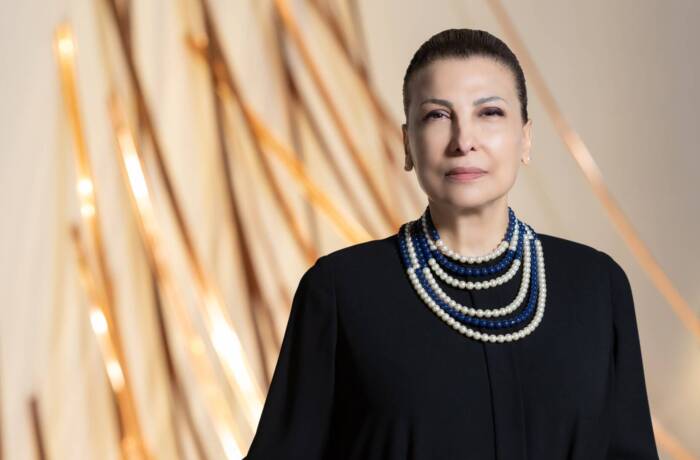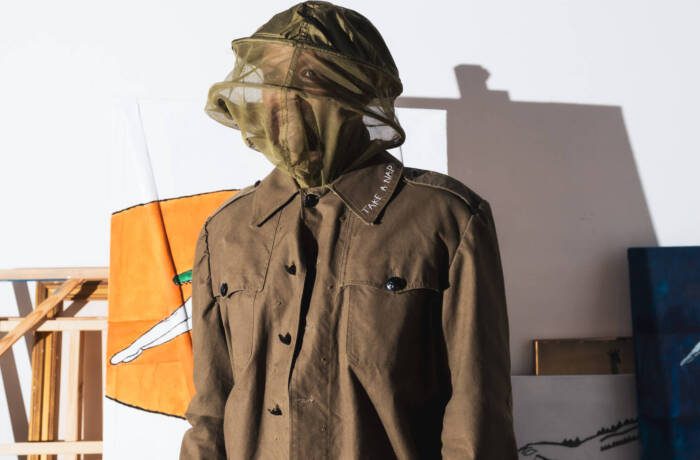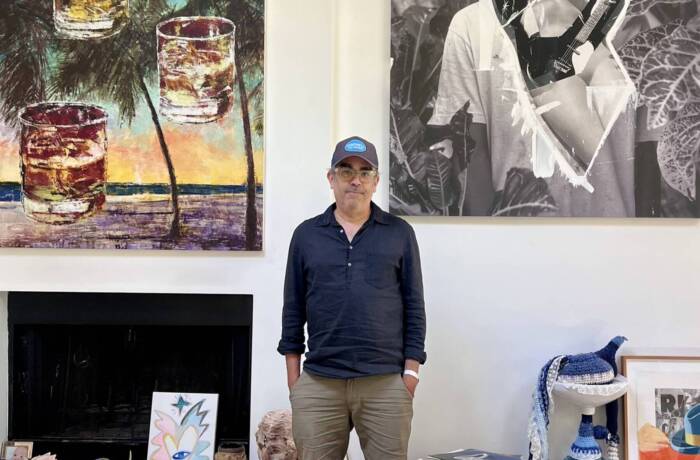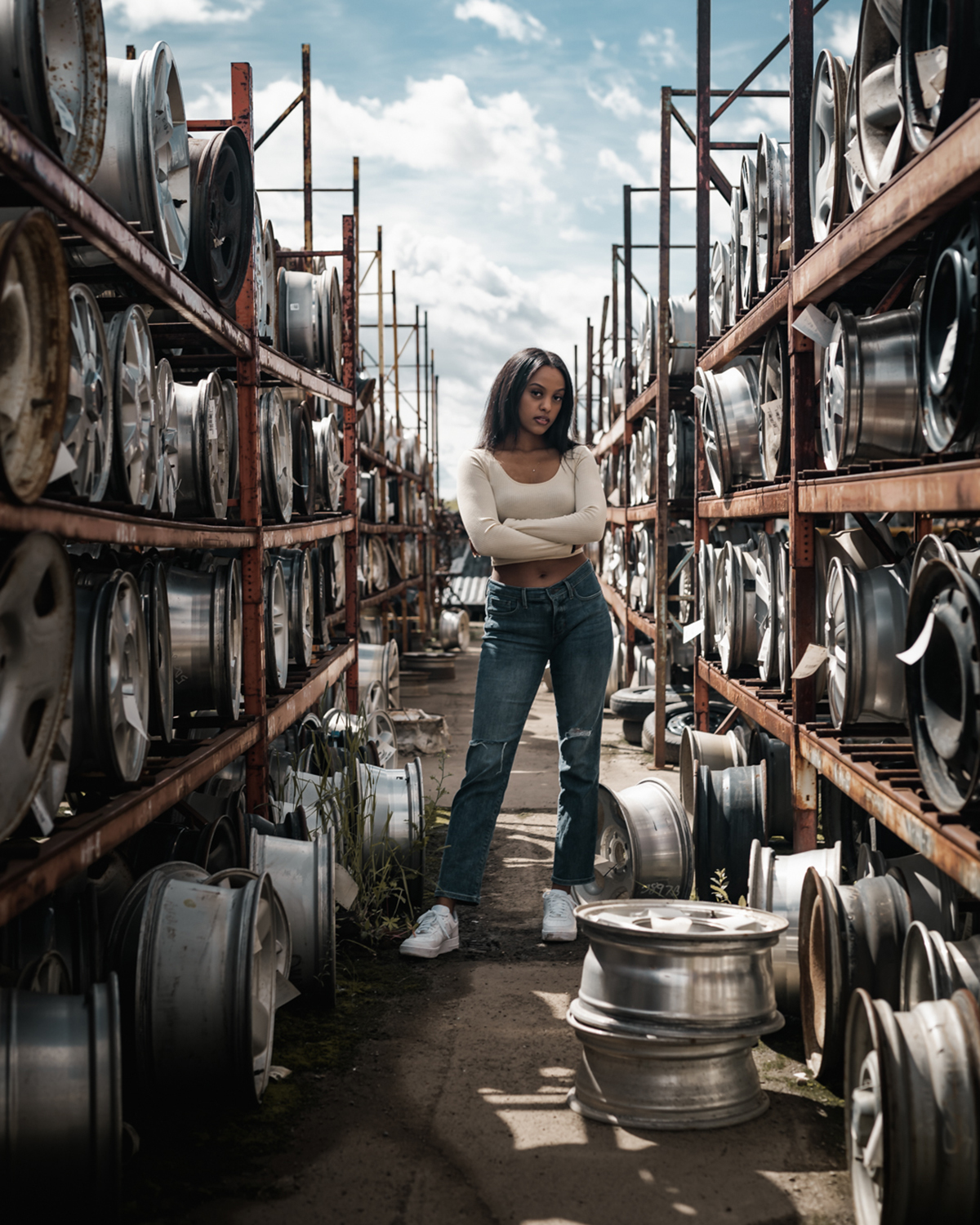
Ruth B. photographed during making of her video for the single ‘Dirty Nikes’, 2020. Image by Gabriel LN.
Is Canadian singer-songwriter Ruth B. the new Tracy Chapman? She has a soulful voice, thoughtful and concerned lyrics, and a growing wave of followers around the world. She also has some of the most creative videos around. Oh, and she speaks fluent Amharic. LUX speaks to her about the music business, social media, BLM and whether playing the piano matters
Ruth B. is a musician very much of her generation. Born Ruth Berhe in 1995 in Edmonton, Alberta – her parents had emigrated from Ethiopia to Canada – she started posting short videos on the now defunct Vine platform in 2013. One of these fragments of a song gained thousands of likes and eventually became her bestselling single ‘Lost Boy’, which in turn has received over 500 million plays on Spotify alone. That song features on her album Safe Haven, released in 2017 on the Columbia label.
Follow LUX on Instagram: luxthemagazine
This kind of rapid rise in the music industry is one that has been made especially possible by social media. But it has also been made possible by Ruth B.’s own skills as a singer and keyboard player – her warm, soulful voice and subtle piano style have won her fans across the generational divides – and by her dedication to her art and her ambition to have artistic control over her songs and videos.
Like most musicians, Ruth B.’s career has been put on hold during lockdown brought about by the worldwide coronavirus pandemic, but it hasn’t stopped her working entirely as she continues to write songs at her home in Edmonton, where she was living when LUX spoke with her.
LUX: When did you start being interested in music. Was it when you were very young?
Ruth B.: I think for me music was always a really prominent part of my life. I just naturally gravitated towards it. I loved singing; my mum sang a lot around the house. I just really loved to make noises with my voice or make sounds with pots and pans, or whatever it was.
LUX: And were your parents musical? Did they encourage you down that route?
Ruth B.: My mother sang in a choir. No-one was particularly musical, but my whole family appreciates music, and they were always very supportive of me, and put me in piano lessons.
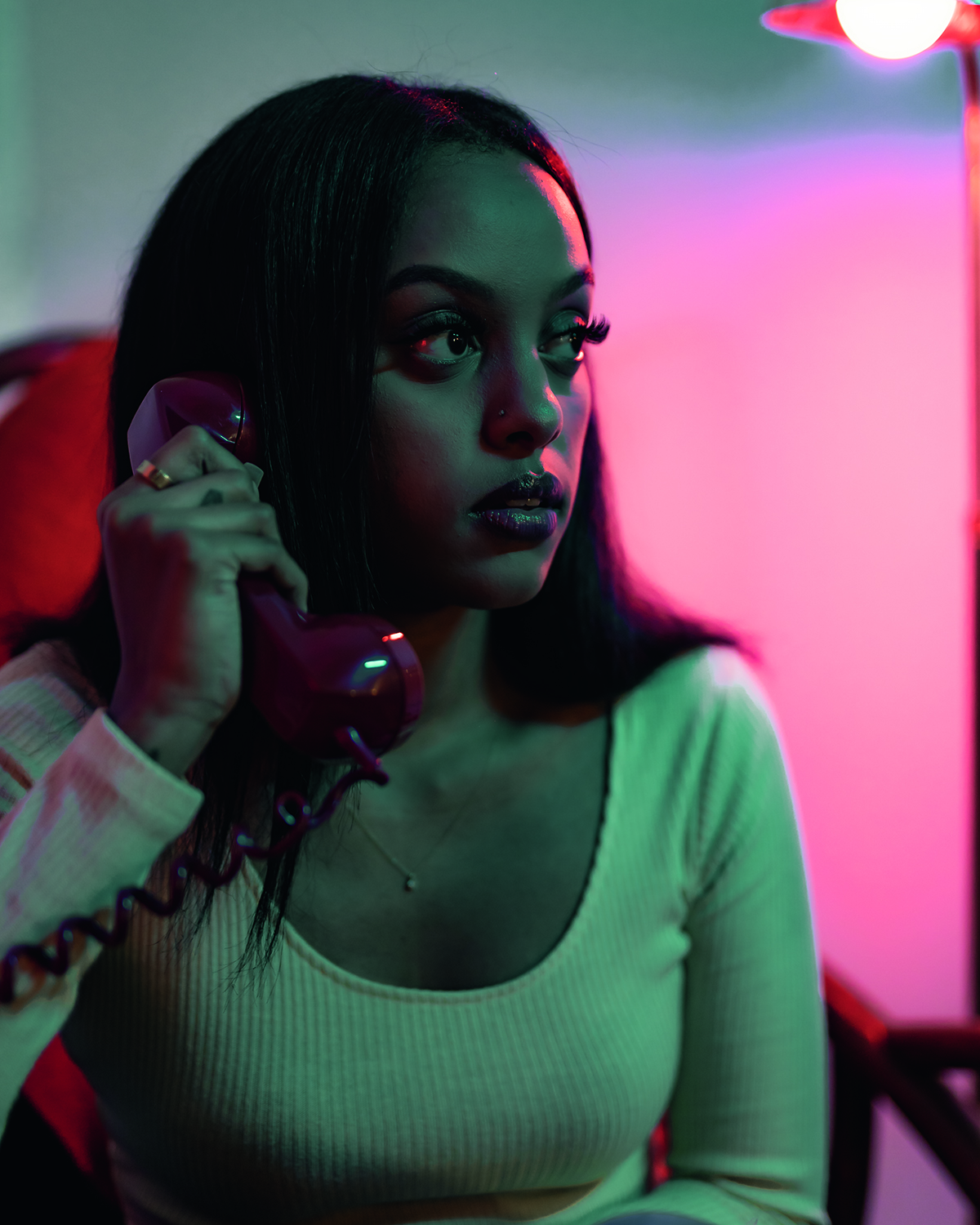
Image by Gabriel LN.
LUX: You’re a very contemporary singer, but there’s something very classical in the way you play piano and sing. Are you aware of this?
Ruth B.: I don’t know if I’m aware of this, I just think that’s the type of music I love listening to and love making. When you start to get more into the music world you get to know what kind of production you want, but I’m aware that I want to keep it organic and stripped back.
LUX: When you were young, playing around with music, did you think you would end up as a global star? Was it an ambition of yours?
Ruth B.: I kind of always hoped I’d end up in music. I didn’t know in what capacity or what that meant, but I certainly knew that music was going to become the focal point of my life.
Read more: Prince Robert de Luxembourg on wine, gastronomy & storytelling
LUX: Do you feel that you have succeeded? Or are you on the path to other things?
Ruth B.: Yeah, I’m always working towards different goals. I’ve definitely had successes… I think in the beginning I was always super critical and hard on myself, but now I think it’s important to celebrate wins and the good things that happen. But I think I still have a long way to go, and there are still things I want to accomplish.
LUX: Like what?
Ruth B.: One goal that I always tell people about is to put out an album that I write, produce, engineer, all by myself. I’ve done the writing, and the production a bit, but all the other stuff I’m still learning. So that’s my biggest goal, to put an album that’s just, you know, completely me.
LUX: Are you releasing an album or some more songs this year?
Ruth B.: Yes, I brought out a new single this summer, and we shot the video for it it in my hometown. And an album towards the end of this year or the beginning of next. It’s been in the works for the past three years now.
LUX: Your videos are very dreamlike and artistic. Do they come from your ideas, or is there someone else who directs them?
Ruth B.: For most of my music videos have been made by different directors, but I’m pretty heavily involved in everything I do. So, I write up my ideas for the video of a song and send it out to three or four producers, and whoever’s vision matches mine is who I’ll go with. I’ve been lucky to work with some really talented people.
LUX: Some of the ideas in your videos are quite surreal, aren’t they?
Ruth B.: They really are. I like to focus on the little details and surprises here and there. I’ve always been into fantastical and magical stuff since childhood, so it’s seeped its way into the videos for my songs.
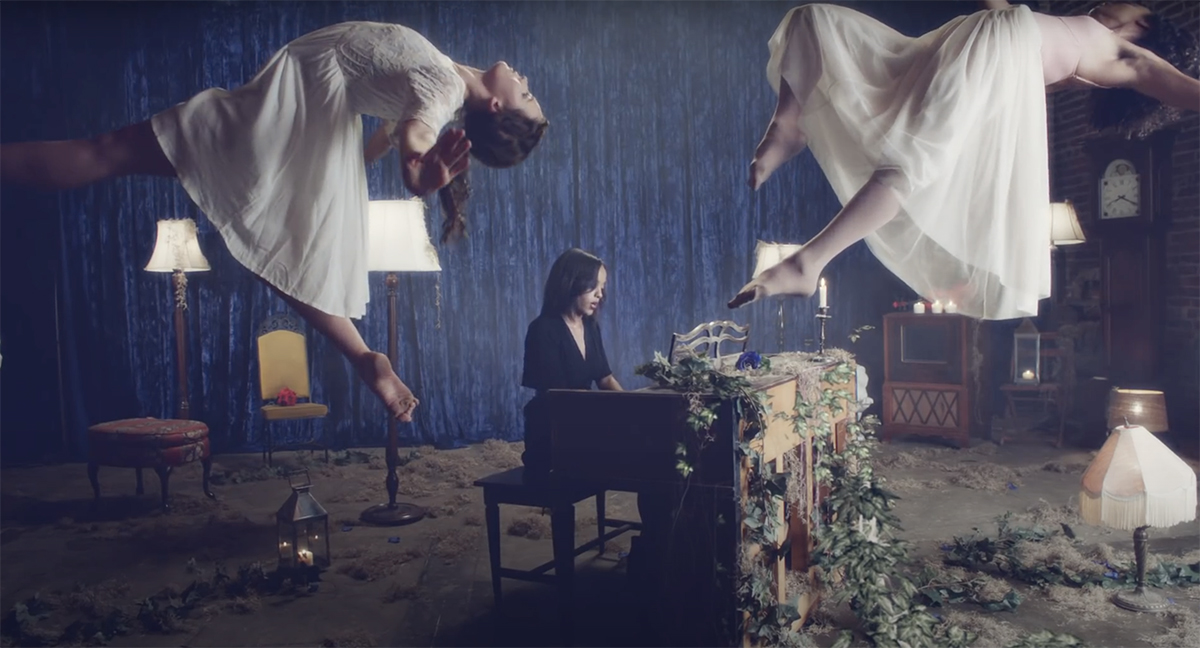
A still from Ruth B.’s ‘Lost Boy’ music video.
LUX: How important are the videos?
Ruth B.: They’re very important. A visual alignment with what you’re hearing is important, especially for a lot of people, and it can sometimes make or break a song. I’ve had songs in the past where we’ve shot an entire video and spent three days and a lot of money on a video, and it just doesn’t work, so we end up not using it.
LUX: Looking on, it seems you’re just doing what you love, and that’s it. But is it difficult?
Ruth B.: Yeah, it is, like any job. But with music it’s hard because sometimes people forget that just because you love music, it doesn’t mean you’re like this super outgoing, big personality. For me, that was the hardest part – getting used to being at the forefront of things. Even being on stage at the beginning was super hard, because growing up I was pretty introverted, but I think over time I’ve got used to it and grown a love for it. It comes with its hardship. You pretty much give your whole life to touring. But I think at the end of the day, if you really love it, then it is worth it.
Read more: Penélope Cruz on designing jewellery for Swarovski
LUX: And what are the biggest challenges?
Ruth B.: I think for me it’s the being away from home and family. Being from Edmonton, Alberta, I spent a lot of the early years, at 18 and 19, away from home. That was difficult – just always being on and ready to go. Shows can be really tiring, and that whole thing of being on stage for an hour or two every night can be hard, but again, you’re doing the thing you really love, so in the back of your head, you’re thinking this is amazing, regardless of how tired you are.
LUX: Do you find it difficult being a young black woman in music?
Ruth B.: Yeah. Being a young black woman in general is difficult in our world, but in music I’ve definitely faced some adversities, but it’s kind of always been that way. It’s not new. It’s stuff I’ve faced in workplaces before now, or in school. It’s certainly there, which is unfortunate.
LUX: Do you think things are changing with Black Lives Matter and recent developments?
Ruth B.: It’s inspiring to see people talking about it and it being at the forefront of a lot of conversations. That inspires change, and with the people I work with, talking about how we can change the industry for black people.
LUX: Do you experience any ageism as well?
Ruth B.: Yes. I think in the beginning I had a hard time with it, because I would always be like this 18 or 19-year-old girl walking into a room of older, usually white men, and it can be a little bit… ergh. But I think for me, at least in my experience, the older I got the more confident I became in my ideas, and more married to the idea of executing things in the way that I wanted them done. Over time I’ve grown a thick skin.
LUX: Thinking about ‘If I Have a Son’, did you write that as a reaction to BLM?
Ruth B.: Yeah, I wrote that after everything happened with George Floyd. I mean, those feelings were always there, but I never thought to put them in a song, just because I never thought I’d get that honest or deep in my music. But when you’re faced with such a hard pill to swallow all you can do is try to channel it, so for me that’s always been music. It’s my go-to therapy, just writing out everything I’m feeling in response to what’s going on.
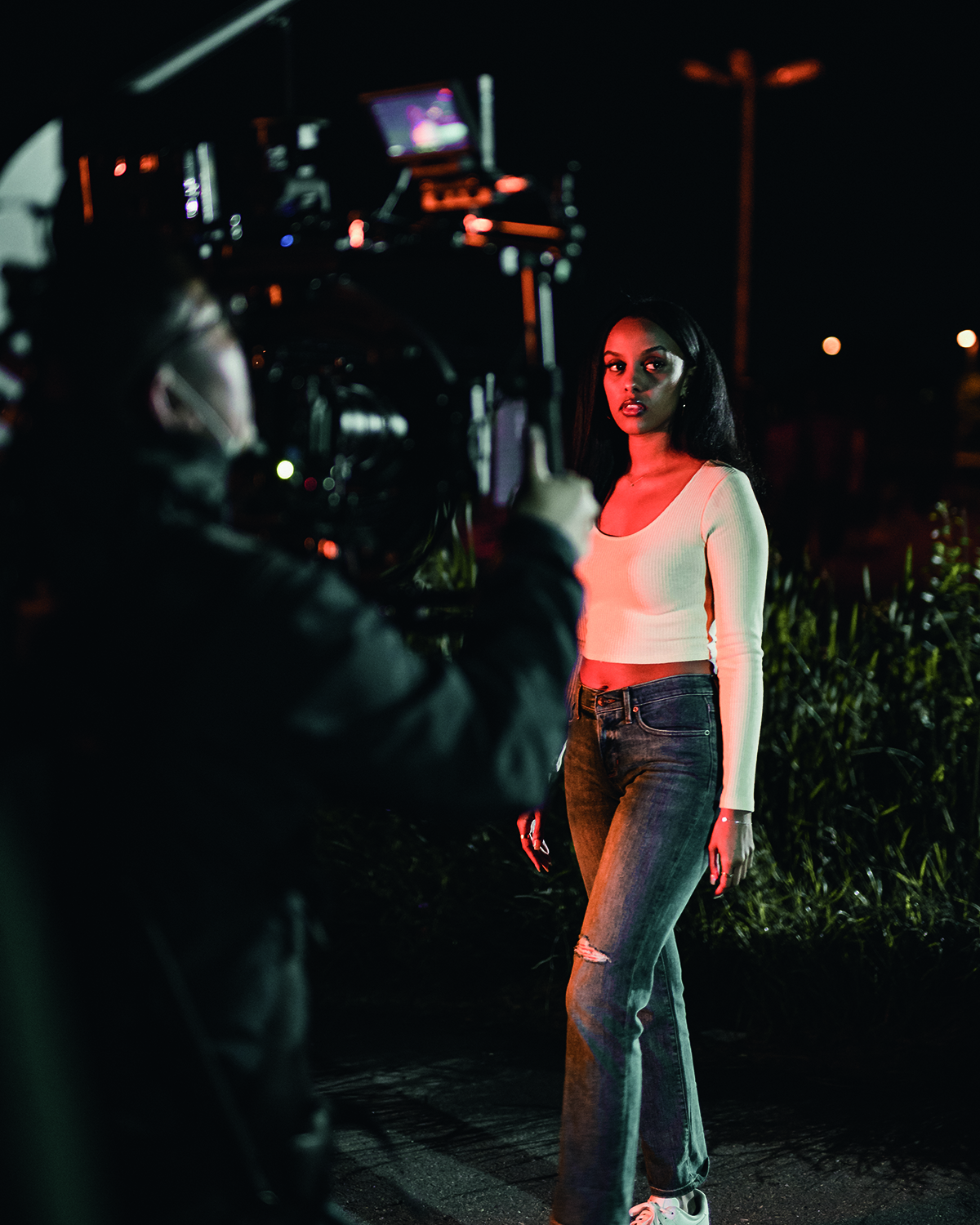
The singer on set for ‘Dirty Nikes’ 2020. Image by Gabriel LN.
LUX: Do you have a good idea about who your fans and listeners are? Is there a single type?
Ruth B.: You know, I don’t think it’s one type of person, because at my shows it’s such a diverse mix of people. That’s like my favourite part, you have little kids and older people and different races and backgrounds. It’s really nice.
LUX: Do you have plans to direct movies or anything beyond pure music making?
Ruth B.: I’ve always been really interested in a lot of stuff. I love to read; I love to write. Eventually, one day, I would like to write a book. I don’t know what kind; it’s always been on my bucket list.
Read more: American artist Rashid Johnson on searching for autonomy
LUX: What kind of books do you like reading?
Ruth B.: Growing up, it was very much fantasy, magic, dragons. As I got older, I got to like mystery. I like poetry, that’s where my heart is now. It goes hand-in-hand with music.
LUX: What poets are you reading?
Ruth B.: I read a lot of Maya Angelou, I love Robert Frost. I also really love Pablo Neruda. I think for me it just helps with my song writing, and garnering inspiration for that. Poetry is really just music without melody, so it’s inspiring when I’m trying to write my own music.
LUX: Do you see yourself as a businesswoman? Is making money a goal or just what happens?
Ruth B.: As you get older you start to think more about business, and you get more on top of your stuff. It’s never been that important to me, but I have my friends and family who tell me I need to keep on top of that. So, as I’ve gotten older, I’ve tried to become more business oriented. In the end, though, the main priority is making music, and I’m happy to be where that can be my main focus, just creating art.
LUX: You came to prominence through Vine. How important is social media?
Ruth B.: It’s really important. And I say that mostly because I’m from a tiny little city in Canada that not a lot of people know about. It’s such a great tool just to get your voice out there in real quick time to spread the word fast. You know, ‘Lost Boy’ started off as a six-second Vine and if it weren’t for that, I wouldn’t be where I am today.
LUX: Has your use of social media changed?
Ruth B.: I’m not as active now as I once was. I don’t plan things out as I used to. In the beginning I would post a cover or some kind of lyric every day. It’s really important when you’re trying to get your foot out. Now I use it to tease music, when I’m about to put something out. Or I’ll tweet lyrics, and I won’t tell people that they’re lyrics, over a few months, and then the song will come out and people will say, “Oh, I remember when you tweeted this ages ago”.
Read more: Designer Ali Behnam-Bakhtiar on bringing dream worlds to life
LUX: I guess you’ve been at home in lockdown like the rest of us. What’s that been like?
Ruth B.: It’s been a challenge, for sure. There’s been some good things, spending time with friends and family. Returning to my roots, and being in my bedroom just writing and with my keyboard. I’ve been so lucky to work with different producers and writers all over the world, but now it’s back to the very beginning, in my room.
LUX: Outside of lockdown, what is a normal day for you?
Ruth B.: A normal day for me… I was living in New York and I would probably spend somewhere between nine and twelve hours in the studio, and then come home, eat dinner, go to bed. And it’s probably my favourite part about all this, being locked in to create music and getting to do that every day.
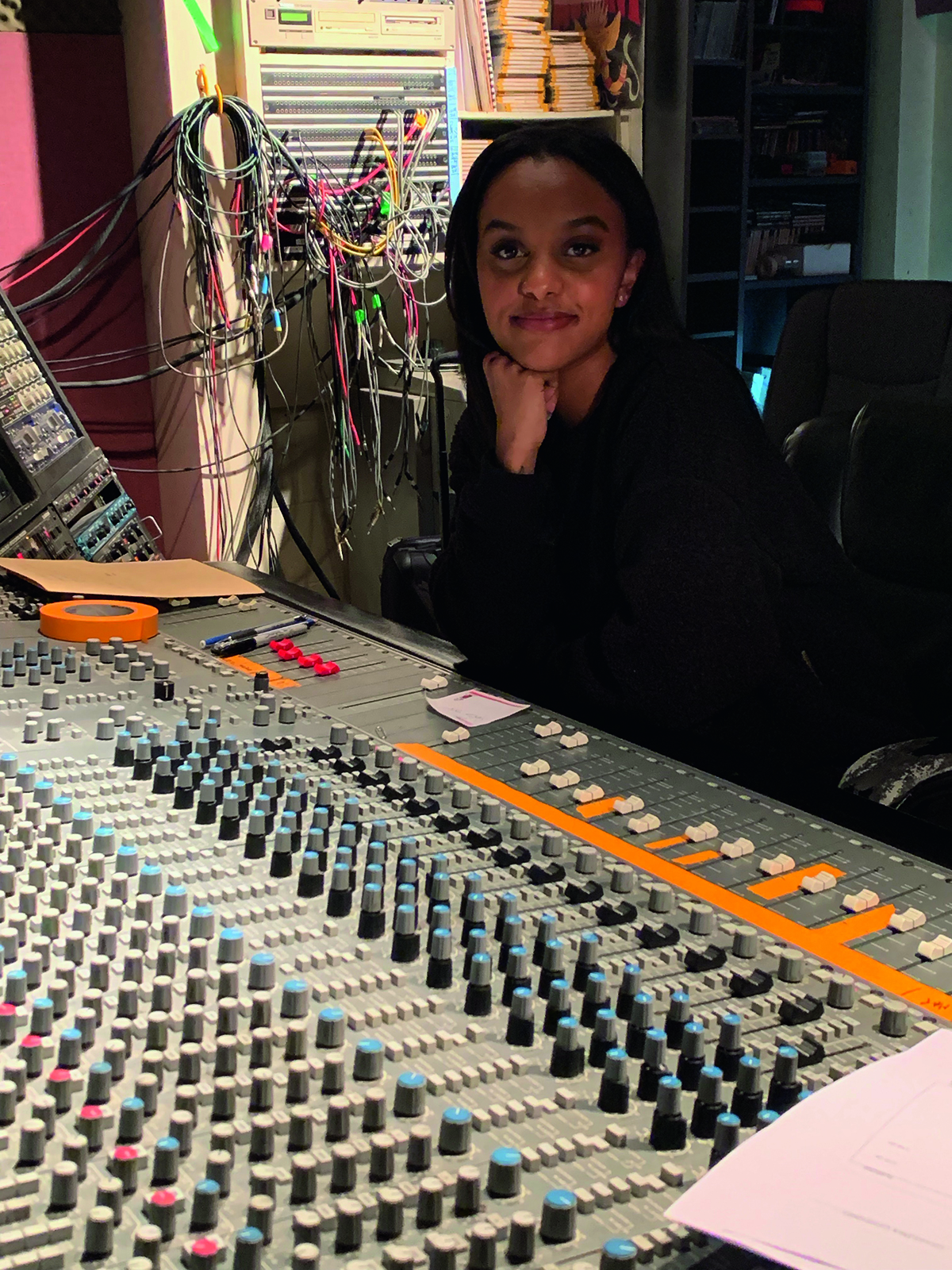
Ruth B. in the studio. Image by Marc Offenbach
LUX: You once said that you weren’t a big party person, but do you still feel like you have to be on the scene to keep up your image?
Ruth B.: Erm, no. I think you can be whoever you are, whoever you want to be. It’s easy, when you’re young, to get caught up in who you should be and what you should want to do, but I’m 25 now, and I have a good idea of who I am, and where I’m going… I’m still figuring it out, but I’m OK with being who I am, and with the fact that I don’t like to go out. I do, from time to time, but it’s not my thing, and that’s OK. There are people who are the same as you and who can be your clique or group. The older you get, the more you’re just like, “Hey, I’m me”.
LUX: Looking forward 10 or 15 years, what would you like to have done by then?
Ruth B.: I guess by then I just want to have made music that means something to me. With everything going on over the past few months, with ‘If I Have a Son’, it’s really inspired me to use my voice and my platform to do good, and to talk about things that actually matter. I just hope I will have done that in some sort of way, and stuck true to who I am. That’s the most important thing to me.
Read more: Get to know the marine biologist pioneering coral conservation
LUX: The reflective and spiritual nature of your songs remind me of Tracy Chapman.
Ruth B.: Well, thank you, that’s so kind. I love Tracy Chapman. That means a lot. I’m a very spiritual person, and very into what I love (which is music), and if people feel that, that’s always a really good feeling for me, so thank you.
LUX: How have you managed to stay grounded as your career has exploded?
Ruth B.: In the beginning it was a lot to handle, because you’re whisked away from home and it’s not like you can call up your friends like you used to. It’s a whole new life. For me the hardest thing was just feeling misunderstood, even by friends and family. You know, as much as they wanted to, they just couldn’t really understand what was going on in my life. They could be there and support me, but I couldn’t go to my best friend and say, “What do I do here?”, because she just didn’t get it. But I’m so thankful to them for keeping me grounded. I think it’s just about keeping those people close to you, and keeping those things the same, because it’s not easy staying yourself when the whole world is changing around you. I think if you make it a priority to not lose yourself in all of it, it’s doable.
LUX: You’ve said that you’re filming a video in your hometown soon. Why is that?
Ruth B.: Mainly because I’ve been isolating at home with my family. I didn’t go to New York when all this started, so I’ve just been in Alberta with my family. To be honest, I’ve always wanted to shoot something at home. I think it’ll be cool for people to see where I’m from and where a lot of these songs have come from.
LUX: How do you write a song? Does it come to you quickly, or does it take months?
Ruth B.: It’s become very abstract. When I started writing two years ago, there was a method to everything. I’d sit at the keyboard, and have a lyric, and I’d write around that. Now it’s all over the place, and I prefer it that way. I could be having a conversation with a friend, and something they say could stick out, and I grab my phone and write a note. Lately I’ve been into coming up with new melodies and writing around that. Life inspires me, really, so whatever feelings I’m feeling – happy, sad, mad, in love, heartbroken – that’s the main focus.
Find out more: ruthbofficial.com
This article features in the Autumn Issue, which will be published later this month.

